Business
VP Harris Proposes Ban On “Price Gouging” Amid High Grocery Prices
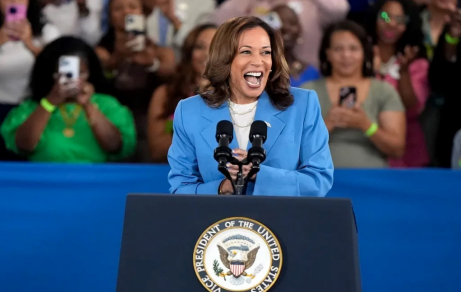
Vice President Kamala Harris has proposed a ban on “price gouging” by food suppliers and grocery stores, aiming to tackle high grocery prices and inflation. The proposal is part of a broader agenda to lower the cost of housing, medicine, and food.
Harris’ plan comes as grocery prices have shot up 21% under the Biden-Harris administration, despite improved supply chains. Since the pandemic, wages have risen sharply, outpacing prices for over a year, but Americans continue to struggle with higher costs.
So, what is “price gouging”? It refers to spikes in prices following a disruption in supply, such as after a natural disaster. Consumer advocates argue that gouging occurs when retailers sharply increase prices, particularly for necessities, under such circumstances.
Several states already restrict price gouging, but there is no federal-level ban. There are federal restrictions on related practices, such as price-fixing laws that bar companies from agreeing to not compete against each other and set higher prices.
Read also : “Harris and Trump in Fierce Battle as US Presidential Election Nears With Three Weeks to Go”
Harris’ proposal may have an impact on future crises, but most economists say it won’t lower grocery prices significantly. Instead, they argue that rising wages should help Americans handle higher costs. President Joe Biden recently declared that inflation has been defeated, with the inflation rate falling to 2.9% in July, the smallest increase in three years.
Harris’ proposal may be a political move, as inflation remains a highly salient issue. Voters blame grocery stores and food manufacturers for the surge in inflation, despite corporate profits soaring in 2021 and 2022. Harris’ plan aims to address this concern and provide relief to Americans struggling with high grocery prices
Business
Taxation and the Nigerian Diaspora

Taxation and the Nigerian Diaspora
For Nigerians in the diaspora, taxation has recently taken on a renewed urgency, shaped by Nigeria’s evolving fiscal reforms and global policy shifts that increasingly touch lives beyond the country’s borders. From London to Atlanta, Toronto to Berlin, conversations among Nigerians abroad are no longer just about exchange rates or remittance channels, but about what the newly introduced tax reforms at home truly mean for them.
Nigeria’s latest tax reforms, scheduled to take effect from January 2026, are among the most ambitious fiscal overhauls in decades. Driven by the need to boost non-oil revenue, the Federal Government has made clear its intention to widen the tax base and improve compliance rather than raise blanket tax rates. According to official data, Nigeria’s tax-to-GDP ratio remains below 11 per cent, far lower than the African average of about 16 per cent. This gap has pushed policymakers to rethink how revenue is generated, especially in an economy grappling with subsidy removal, currency reforms and rising public debt.
For Nigerians living abroad, the immediate concern was whether these reforms would extend Nigeria’s tax reach to foreign-earned income or remittances. That fear was amplified by online speculation and misinformation. However, the government has repeatedly clarified that foreign income earned by non-resident Nigerians remains exempt from Nigerian taxation. Residency remains the key determinant. Under the revised framework, an individual becomes tax-resident only if they spend 183 days or more in Nigeria within a 12-month period. For the vast majority of Nigerians in the diaspora, this condition does not apply.
Equally important is the clarification on remittances. Nigeria received approximately 20.5 billion dollars in diaspora remittances in 2023, according to World Bank estimates, making it one of the largest recipients globally. These inflows support millions of households and often serve as informal social security. The government has stated unequivocally that personal remittances sent to families are not subject to taxation. This reassurance, publicly restated by the Presidential Committee on Fiscal Policy and Tax Reforms, was crucial in calming fears of an erosion of diaspora support for families and communities back home.
That said, the reforms do affect Nigerians abroad who maintain economic ties with Nigeria. Rental income from properties, dividends from Nigerian companies, business profits and capital gains derived within Nigeria remain taxable. What has changed is the effort to streamline rates and enforcement. Under the new structure, individuals earning up to ₦800,000 annually in Nigeria are exempt from personal income tax, while higher income brackets attract progressive rates of up to 25 per cent. For diaspora investors, this clarity offers both reassurance and responsibility.
Yet taxation for Nigerians abroad is not shaped by Nigeria alone. Developments in host countries also matter. In the United States, for example, proposed legislation to impose an excise tax on outbound remittances has raised concerns among immigrant communities, including Nigerians. While still under debate, such proposals highlight how diaspora Nigerians can face additional financial pressure even when Nigeria itself does not tax remittances. These external policies complicate the already delicate balance between supporting home and meeting obligations abroad.
Beyond the figures and laws lies a deeper emotional dimension. Many Nigerians in the diaspora already shoulder what feels like an unspoken tax through remittances, school fees for relatives, medical bills and community obligations. When new fiscal policies are announced, the question is rarely about refusal to contribute but about trust. Diaspora Nigerians want assurance that taxation is tied to accountability, improved infrastructure and governance reforms that justify continued engagement.
Tax policy also influences long-term decisions. Uncertainty or perceived hostility can discourage diaspora investment, while transparent and predictable systems can attract it. Nigeria’s diaspora population is estimated at over 15 million people, with significant skills, capital and global networks. How taxation is framed and implemented will shape whether this community feels like partners in national development or distant revenue targets.
For second-generation Nigerians born abroad, the issue is even more symbolic. Their connection to Nigeria is often cultural rather than administrative. If engagement with the country is defined largely by obligations without visible benefits, the risk is gradual disengagement. Taxation, therefore, becomes a measure of how Nigeria defines citizenship in a globalised world.
In the end, the newly introduced tax reforms present both reassurance and reflection for Nigerians in the diaspora. They confirm that foreign-earned income and personal remittances remain protected, while reinforcing the principle that income generated in Nigeria carries responsibility. More importantly, they reopen a broader conversation about trust, inclusion and mutual benefit. For Nigerians abroad, tax is no longer just a line in a policy document; it is a mirror of how connected they remain to the country they still call home.
Business
Royal Navy Intercepts Russian Warship Amid Surge in Moscow’s Naval Activity
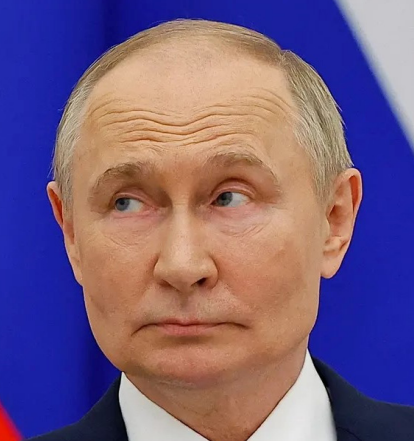
Royal Navy Intercepts Russian Warship Amid Surge in Moscow’s Naval Activity
The United Kingdom says it is witnessing a sharp uptick in Russian military movements at sea, as the Royal Navy confirmed the interception of a Russian corvette and tanker transiting through the English Channel.
The UK Ministry of Defence, in a statement on Saturday, disclosed that Russian naval operations around British waters have risen by 30 per cent in the last two years, a development officials described as “noteworthy and concerning” given the current geopolitical climate.
According to the ministry, HMS Severn, a Royal Navy patrol ship, shadowed the Russian corvette RFN Stoikiy and its support tanker Yelnya as the vessels made their way close to UK waters.
The British crew maintained contact until the ships approached the French coastline, where surveillance duties were formally handed over to a NATO ally in line with long-standing maritime cooperation protocols.
This latest encounter comes against the backdrop of rising tensions between London and Moscow.
Just weeks ago, a Russian intelligence-gathering vessel was accused of pointing lasers at UK surveillance aircraft operating off the coast of Scotland, an action Britain condemned as “reckless and dangerous.”
Moscow, however, dismissed the allegation as “militaristic hysteria,” further deepening diplomatic strains.
Security analysts note that the increase in Russian naval deployments fits into a wider pattern of assertive military posturing by the Kremlin in key maritime corridors.
In response, the UK and its NATO partners have stepped up patrols across the North Atlantic and Arctic regions.
To reinforce ongoing monitoring efforts, the UK has deployed three Poseidon maritime patrol aircraft to Iceland under a NATO arrangement aimed at improving intelligence gathering and boosting situational awareness of Russian submarine and surface vessel activities.
Defence officials stressed that while the interception of foreign warships in international waters is routine, the frequency and nature of recent encounters underscore the need for heightened vigilance.
“The Royal Navy will continue to safeguard our territorial integrity and uphold international maritime security,” a senior defence source said, adding that British forces remain “fully prepared to respond to any emerging threats.”
The UK’s latest move reaffirms its commitment to NATO’s collective defence posture as Russia continues to test Western resolve in contested waters.
Business
US Government Shutdown Grounds Flights as Air Travel Faces “Trickle” Threat

US Government Shutdown Grounds Flights as Air Travel Faces “Trickle” Threat
Air travellers in the United States continue to face severe disruptions for a third consecutive day as the federal government shutdown drags on, with Transportation Secretary Sean Duffy warning that flights could be reduced to a “trickle” if lawmakers fail to resolve the funding impasse.
According to flight tracker FlightAware, approximately 1,400 flights to, from, or within the US were cancelled on Sunday morning, while 2,700 others were delayed.
Newark, New Jersey, reported the longest delays, averaging over two hours.
The shutdown, now in its 40th day, has left hundreds of thousands of federal workers unpaid and disrupted vital services, including air traffic management.
Federal Aviation Administration (FAA) officials had announced last week that air travel capacity would be cut by up to 6% this weekend and 10% next weekend at 40 of the nation’s busiest airports.
While international flights are officially exempt, airlines may still cancel some of these services.
The root of the crisis lies in a political deadlock between Republicans and Democrats over government funding.
Duffy cautioned on CNN that the situation could escalate further, particularly as Americans prepare for the Thanksgiving holiday.
“You’re going to see air travel be reduced to a trickle,” Duffy said.
“Many of them are not going to be able to get on an airplane because there are not going to be that many flights that fly if this thing doesn’t open back up.”
The shutdown has left air traffic controllers fatigued, with many refusing to report to duty due to unpaid wages, forcing the FAA to reduce flight allowances.
While Defence Secretary Pete Hegseth offered military controllers as a stopgap, Duffy rejected the proposal, citing civilian certification requirements.
Political tensions remain high, with each party blaming the other for the growing chaos.
Senate Minority Leader Chuck Schumer accused Republicans of “playing games with people’s livelihoods,” while the White House claimed Democrats are “inflicting their man-made catastrophe on Americans just trying to make life-saving medical trips or get home for Thanksgiving.”
Democrats insist on including funding for health insurance subsidies, a condition that Republicans have resisted, preferring a clean government funding bill.
Meanwhile, President Donald Trump suggested over the weekend that money be sent directly to Americans to purchase health insurance instead of going through insurance companies.
Efforts to reach a compromise appeared to gain some traction, with the Senate convening in a rare weekend session.
Republican lawmakers were reportedly working on a compromise package that could end the stalemate, with a possible vote to advance legislation expected.
-

 Business18 hours ago
Business18 hours agoTaxation and the Nigerian Diaspora
-

 News23 hours ago
News23 hours agoTwo Dead as Anthony Joshua Involved in Road Crash in Nigeria
-

 Analysis24 hours ago
Analysis24 hours agoAre Forest Guards to the Rescue? By Alabidun Shuaib AbdulRahman
-
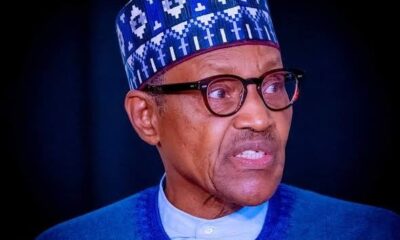
 Analysis6 days ago
Analysis6 days agoBuhari, Power and the Burden of Integrity, by Alabidun Shuaib AbdulRahman
-
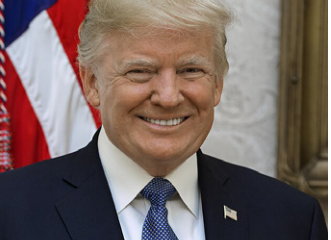
 News19 hours ago
News19 hours agoUS Pledges $2 Billion to UN Humanitarian Programs Amid Funding Cuts
-
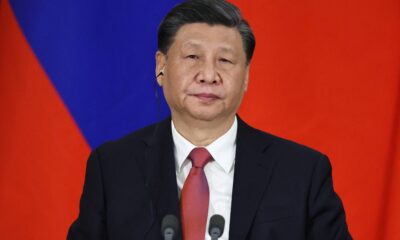
 News19 hours ago
News19 hours agoChina Launches Major Military Drills Around Taiwan











